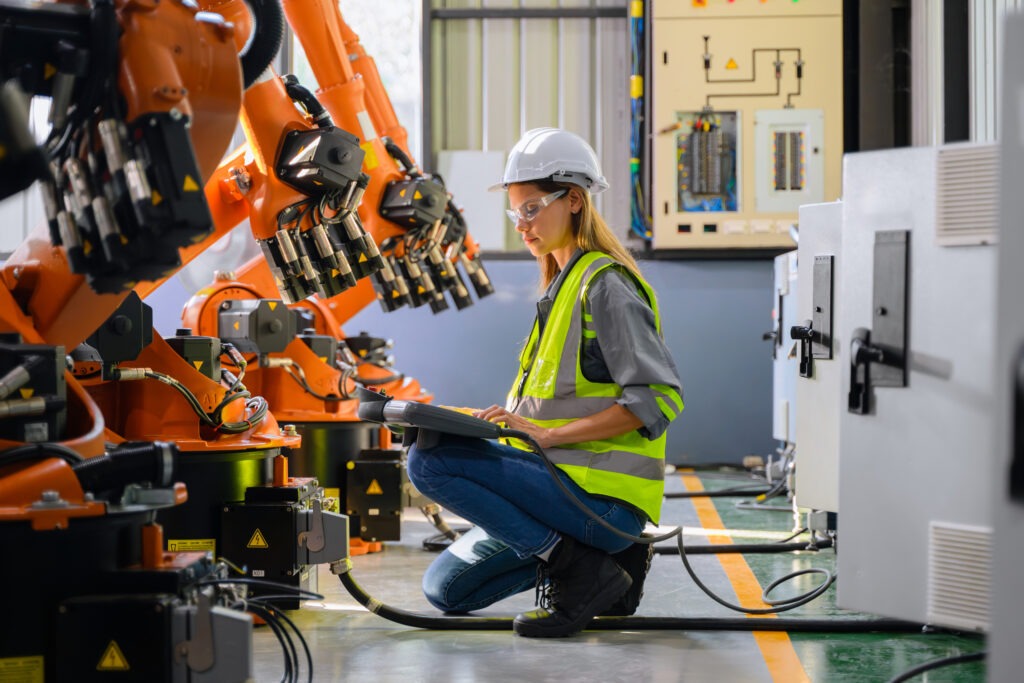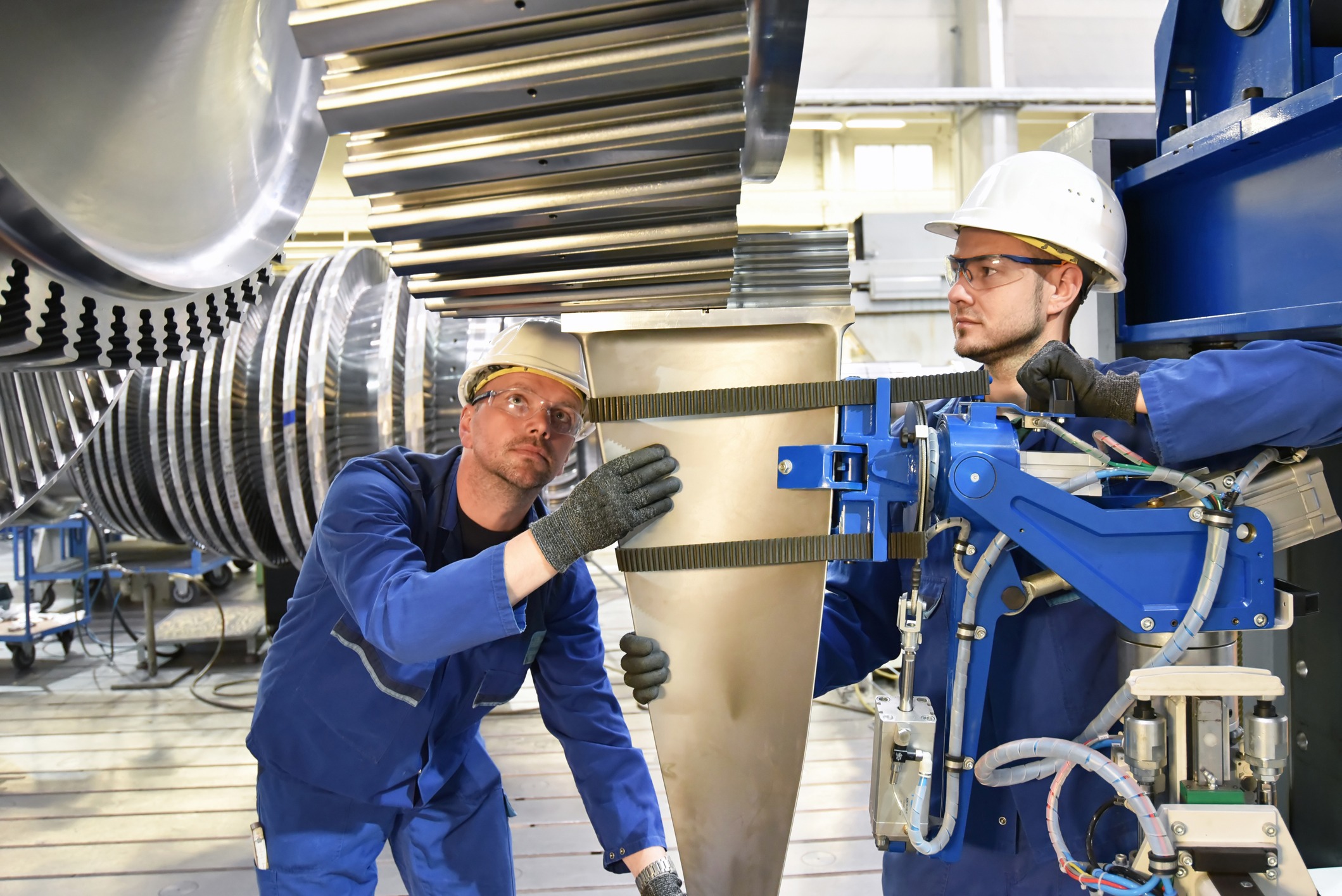How are production employees used in manufacturing and mechanical engineering?
Manufacturing and mechanical engineering offer a wide range of employment opportunities for production workers. These range from basic tasks as production helpers or assistants to highly skilled roles requiring extensive experience, such as machine design, system development, and assembly.
Table of contents
- How are production employees deployed in manufacturing and mechanical engineering?
- What jobs do production employees perform?
- What is the difference between manufacturing and production?
- What are the tasks of production employees in manufacturing and mechanical engineering in detail?
- What does a machine and plant operator do?
- What does a process mechanic do?
- What are the tasks of a cutting machine operator?
- The assembly of components in mechanical engineering - what is important?
- Quality control - what's behind it?
Estimated reading time: 14 minutes
What jobs do production employees perform?
In most cases, production employees work directly on assembly lines, machines, and industrial systems. Technicians and engineers are responsible for the development, planning, and design of these systems. Another key area of responsibility is quality assurance.
Where can production employees be found at work?
- Operating machinery: Machines such as lathes, CNC machines, and milling machines must be operated, monitored, and maintained.
- In manufacturing: Production employees fabricate components and assemblies, typically through machining, assembly work, or welding.
- Maintenance and servicing: Machines and systems require regular maintenance to prevent breakdowns and to detect and fix faults early.
- Quality assurance: The manufactured products must be checked. This involves ensuring that the required quality is present by fulfilling all requirements for the goods.
- Transport and storage: Materials and raw materials need to be stored and moved, tasks that still rely heavily on manual labour.
What are the typical professions in this field?
- Machine and system operators: They monitor and operate production systems and machinery as needed.
- CNC millers or turners: They operate CNC machines and program them for specific work steps and processes.
- Industrial mechanics: Responsible for maintaining and repairing machines and systems used in production.
- Production mechanics: They manufacture, process, and assemble components for various applications.
- Machining mechanics: Specialised in producing components using machining technologies such as turning, drilling, and milling.
- Production planners: They plan, coordinate, and control production processes to ensure efficient workflow.
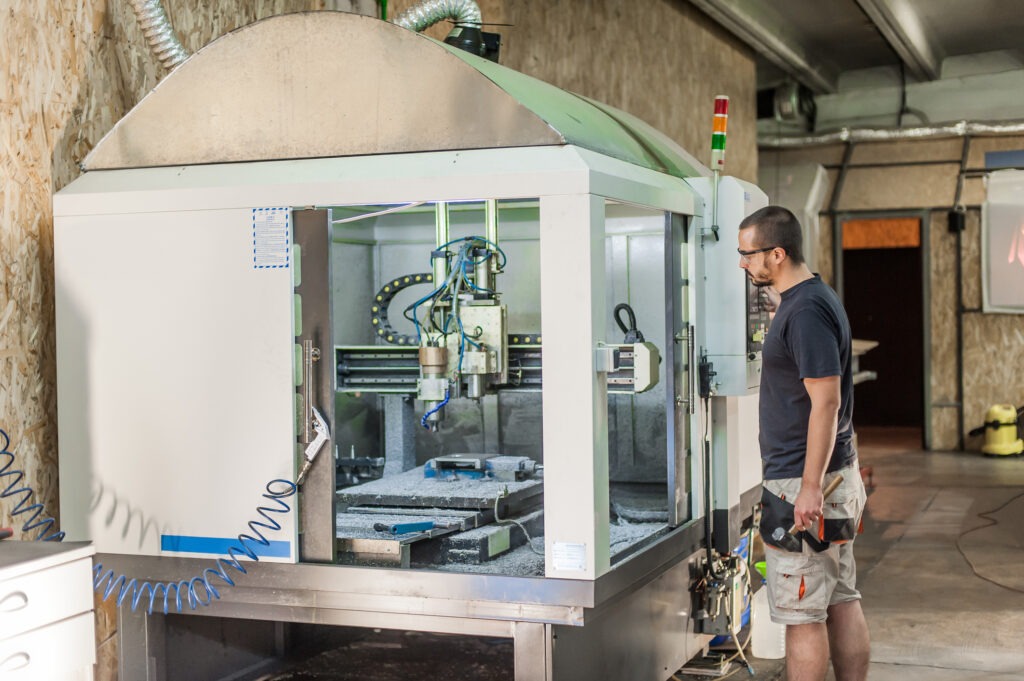
What is the difference between manufacturing and production?
Production is a broader term than manufacturing. In fact, manufacturing is a subcategory of production. It focuses on the actual creation of finished products by processing semi-finished parts, materials, or raw goods.
Production, on the other hand, covers all stages from raw materials to the final delivered product. This includes not only manufacturing, but also planning, procurement, quality control, packaging, and distribution.
Take automotive production as an example: assembling components, processing parts, and painting are all part of manufacturing. Production includes those steps, but also the sourcing of components, logistics, and delivery to the customer.
What are the tasks of production employees in manufacturing and mechanical engineering in detail?
The tasks of production employees are very diverse. They work on assembly lines, machines, and production systems. Their duties include refilling materials, inspecting components, operating controls, and packaging products. These activities typically do not require formal training.
Production jobs are particularly in demand, as there is a constant need for new employees. Production workers operate machines, set them up, and perform routine maintenance. They are also responsible for transporting goods and ensuring quality standards are met.
While specific tasks may vary depending on the role, they generally include:
- Monitoring and operating various production machines and systems
- Assembling parts and components
- Sorting parts, materials, and raw goods
- Inspecting products for defects and ensuring smooth workflow
- Transporting goods and supporting warehouse operations
- Conducting quality control checks to verify compliance with specifications
- Preparing components for dispatch, including packaging
- Performing general clean-up tasks as part of production routines
Production employees typically work in factory halls, warehouses, or on loading ramps. These environments are often dusty and sometimes noisy. As such, production workers need to be physically resilient and comfortable working in challenging conditions.
What does a machine and plant operator do?
Machines and systems are used in production. Here it is necessary to operate these and more. This looks like this in detail:
- The processing of orders: The production concept is often based on the receipt of orders, which then need to be processed. This also includes customer service. Production employees must be involved in this area as well.
- Operation, maintenance and repair: A machine and plant operator must set up, monitor, maintain, and repair the machines. The goal is to ensure smooth operation and maintain functionality. If system issues occur, they must be identified and resolved. Operators must also provide support when there are questions about functions and processes.
- Programming: In order to commission machines and systems for a task, they must be configured according to specific requirements. This is done using menus, from which the appropriate options must be selected.
- Coordination: To meet efficiency requirements, there is ongoing coordination with supervisors. This enables process techniques to be tracked and continuously improved.
In which areas can machine and plant operators specialise?
Machine and plant operators can choose to specialise in a variety of fields. These include:
- Working with metals and plastics
- Employment in textile technology
- Roles in the food industry
- Work in the paper and printing sectors
Qualified professionals with formal vocational training, such as industrial mechanics or similar, are particularly in demand for these roles. Operators must also have experience in handling machinery and computer-controlled systems.
In addition, employees should be able to work independently and follow structured, careful procedures. A strong sense of responsibility, reliability, and the ability to work in a team are also essential.
That may sound like a lot of demands placed on employees, but there are also numerous benefits: a secure job with significant responsibility, company pension schemes, special holiday and Christmas bonuses, cost allowances, and access to a company doctor.
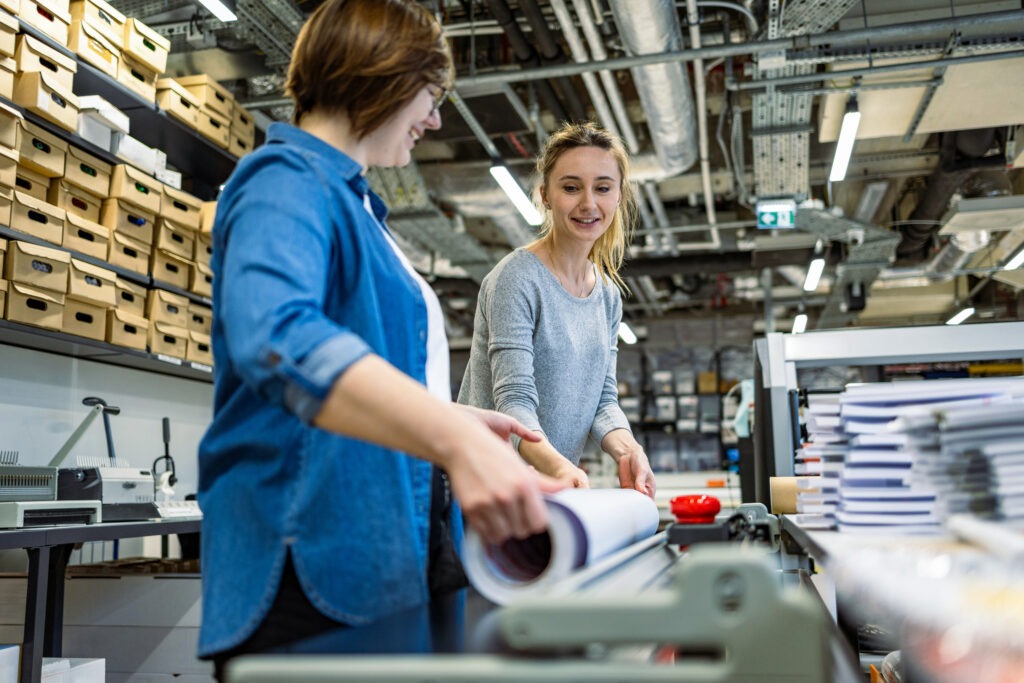
What does a process mechanic do?
Process mechanics are responsible for operating the machines and machine groups required for specific manufacturing processes. They monitor, maintain, and control these systems to ensure efficient and accurate production.
Their work is guided by the raw materials used and the specific requirements of the customer. Accordingly, process mechanics program the systems, perform manual tasks, and oversee all production processes to ensure the desired result is achieved.
During production, they regularly take samples to check product quality. If the results deviate from expectations, they make the necessary adjustments to bring the process back in line.
Once production is complete or during process interruptions, process mechanics are responsible for cleaning the equipment and systems. This may also include changing oils and refilling coolants as needed.
There are several areas of specialisation for process mechanics, such as plastics and rubber technology, glass technology, and surface coating technology.
Process mechanics typically work in production halls or workshops. Since the work environment and tasks remain relatively consistent, this profession is particularly well-suited for those who value stability and routine in their daily work.
What are the tasks of a cutting machine operator?
Cutting machine operators are primarily involved in the production of components used in machines, engines, and turbines. These components are manufactured using CNC-controlled machine tools.
Operators must have in-depth knowledge of CNC machining. They are responsible for planning and preparing work tasks, as well as maintaining the CNC machines themselves. Cutting machine operators typically work in toolmaking, mechanical engineering, lightweight metal construction, and the automotive industry.
The assembly of components in mechanical engineering - what is important?
A very important part of manufacturing and mechanical engineering is the assembly of components. Those who specialize in this area hold a strong position in the market, this applies both to companies within the industry and to employees on the job market.
Assembly is carried out according to customer-specific requirements. Often, this involves custom machinery, not just mass-produced machines. These machines and systems are designed and built based on the individual needs of the customer, such as the dimensions of their production halls and the intended purpose of the machines. Will the machines be used to manufacture toys or to build vehicles?
When custom machines are developed, it's a full-scale project. This means the machines must be designed, built according to specifications, installed on-site, and fully set up. Assembly plays a role at every stage, during planning (when the assembly itself must be considered), during production (when parts are assembled), and during on-site installation (when modules and components are put together).
Customers provide the production documentation, which forms the basis for planning and execution. These projects often involve a combination of mechanical, hydraulic, and pneumatic components, as well as standard electrical installations.
Throughout the project, the manufacturer also prepares technical documentation for the custom machines. This is handed over to the customer, and the customer’s operators are trained in how to operate the machinery.
Manufacturing Methods and Techniques Used in Mechanical Engineering
- Cutting materials, for example with band saws
- Producing welded structures using various materials such as stainless steel
- Conventional milling and turning
- CNC milling
- CNC grinding
- 3- to 5-axis milling in CNC machining
- The assembly of modules
- The assembly of complete systems
- Performing electrical installations
- Laser marking of components
- Measurement tasks, such as determining layer thickness and surface roughness
- Thermal treatment of materials and assemblies
- Shaping sheet metal and frames
These processes require a range of employees with different qualifications. For instance, unskilled workers perform basic assembly tasks, such as fastening components with screws. Qualified welders, on the other hand, are responsible for welding tasks. This includes the fabrication of containers, machine frames, and the permanent joining of parts and assemblies.
Electricians handle electrical connections. They install and configure switch boxes and often have additional qualifications in surface finishing, the installation of IT systems, sensors, and more.
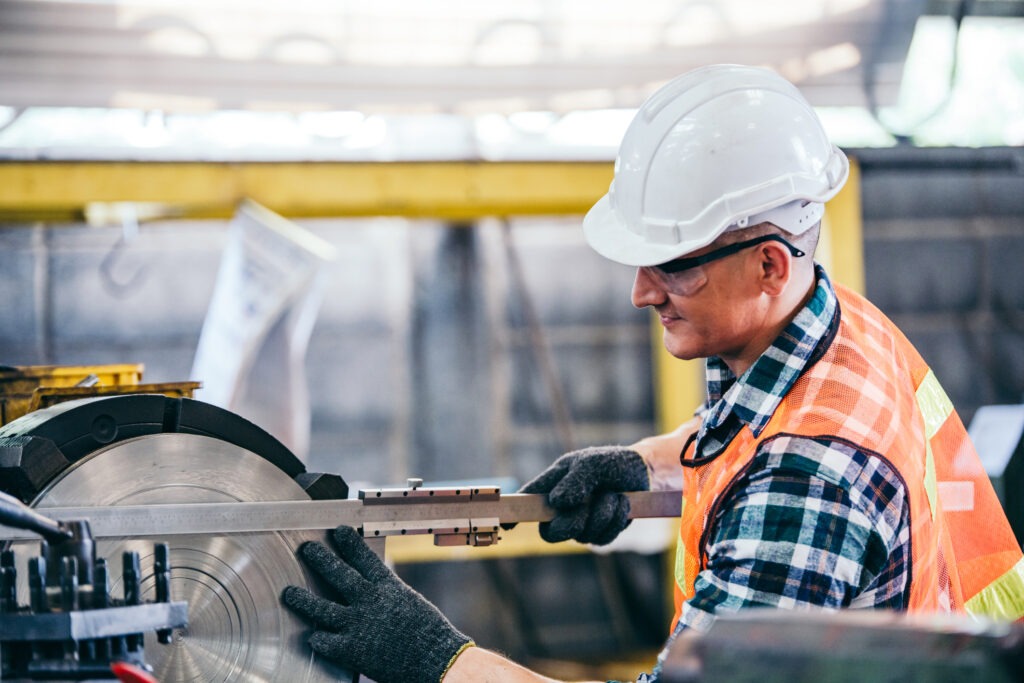
Quality control - what's behind it?
Quality control plays a crucial role in production to ensure that required standards are met. The goal is to fulfill customer requirements for the product and, in doing so, support a strong and, above all, long-term working relationship.
Those responsible for quality control follow company-specific guidelines to inspect finished products. But their role goes beyond that: they also monitor how services related to production are delivered and identify areas for improvement. In addition, they contribute to the optimisation and better organisation of internal company processes.
Where Quality Control Staff Are Deployed
Based on the points outlined above, various areas of application emerge for employees responsible for quality control. These include:
- Raw Material Inspection: Inspectors check the delivered raw materials. What are their properties, and are they suitable for the intended use in production?
- Process Control: Employees ensure that individual processes run according to specifications. The main goal is to make sure that the quality standards intended to be achieved through these processes are actually met.
- In-Process Inspection: During production, employees take samples in order to detect defects as early as possible.
- Final Inspection: Finished products are checked to determine whether they meet the specified properties and required standards.
- Error Analysis: Identified defects are analyzed to determine their root causes. Based on this, improvement measures are developed.
- Quality Documentation: In this area, employees document the data collected during inspections. The inspections themselves are also recorded to allow for later traceability of what was checked and when. Additionally, quality data is used to determine which process changes led to which results.
It is the responsibility of quality control staff not only to identify defects but also to contribute actively to their correction and future prevention. To this end, they develop improvement proposals and work continuously to optimize processes.
Conclusion
There are a wide range of roles for production employees in manufacturing and mechanical engineering. These range from simple tasks such as loading machines, cleaning up, and packaging, to more advanced duties such as setting up automated quality control systems, maintaining these systems, and analyzing the inspection results.
Manufacturing is a subset of production. While production includes the entire process, from the delivery of raw materials or components to the final delivery to the customer, manufacturing focuses exclusively on the transformation of raw materials or components into finished products.
The responsibilities of production employees can vary significantly. They may include packaging products into boxes or performing maintenance on machines and equipment used in production.
Related topics:
